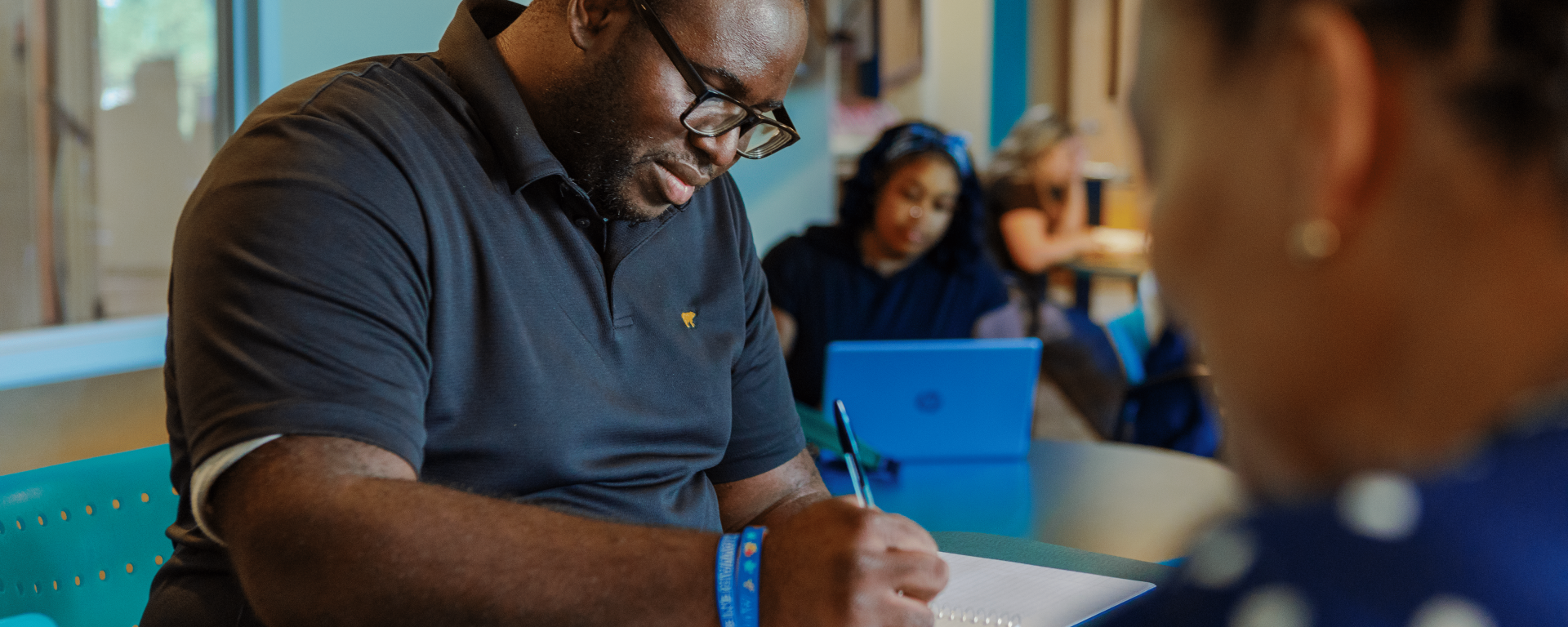As we mark the start of Neurodiversity Celebration Week, we don’t only take time to recognize the vast and variable nature of the human experience. We honor the contributions neurodivergent thinkers and leaders make every day — shaping the future with ingenuity, innovation, and unique insight.
Over the past two decades, autism diagnoses have risen at a steady rate. Contrary to appearances, this is not because autism spectrum disorder (ASD) is becoming more prevalent — instead, it’s because awareness of ASD is becoming more refined.
One improved understanding? ASD truly is a spectrum. From one individual to another, autism doesn’t look the same. With the knowledge that autism represents a broad range of neurodiverse identities, mental health professionals, families, and individuals have become more aware of the nature of ASD and other neurodivergences — leading to better diagnostic methods and enhanced visibility.
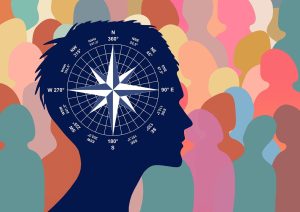
While entertainment, social media, and science have all weighed into the equation, the most critical factor in raising awareness is the work of the advocates promoting a shift in public perception. Moreover, unlike a TikTok video or Instagram post, the grassroots advocates in your area are directly on the ground — offering on-the-spot support to individuals and families in the autism community.
Goodwin University student Denzel Closs is proudly amongst the neurodivergent leaders advocating for the autism community. Throughout his Goodwin journey, Denzel has made the Dean’s List four times, completed fieldwork for his Human Services degrees, and served at Autism Families of Connecticut, where he provides a safe space for autistic youth and their families — helping them feel validated, valued, and seen.
“I was a different individual trying to find my place”
While some of us may recount our school days with sentimentality, we must remember that the K-12 experience is vastly subjective. While those pre-diploma days might be a source of nostalgia for some, for many neurodivergent folks, the K-12 educational journey can range from anxiety-inducing to deeply disenfranchising.
Although educational equity has undoubtedly improved over the past decades, many factors maintain the propensity to make school a traumatic experience for neurodiverse youth. From struggling to receive appropriate, equitable, and accessible support services to social exclusion, bullying, and sensory overstimulation, neurodivergent learners can struggle to acclimate to academia — ultimately creating an isolating environment that paints formal education in a negative light.
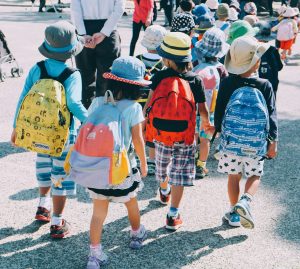
Such trials were defining traits of Denzel Closs’ early education. “I was born in Hartford, then my folks and I moved to East Hartford in the late 90s,” Denzel recalls. “I remember as I got into my teen years and high school, the experience was difficult. I always felt so different. I was a different individual trying to find my place, and I didn’t know where I stood.”
Then, the summer before his first year of high school, struggling with self-identity led Denzel to a life-changing realization. “It was summer 2009, and I was heading into ninth grade,” he remembers. “I wanted to find out more about myself and why I felt so different from everyone. Then, my mother told me autism runs in the family and that I have an uncle with autism. When he was growing up, no one knew what it was until things started changing over the years and throughout time.”
“I realized I don’t really need to be like everyone else”
For Denzel, this realization led to a profound sense of validation. “I was trying to be like everyone else and was getting nowhere,” he describes. “Then, I realized I don’t need to be like everyone else. I could be my own character.”
While identifying on the spectrum was liberating for Denzel, it didn’t eliminate the daily challenges he encountered at school. “Where I was, most people didn’t understand what it meant to be different, especially when you have a special needs fellow,” he delineates. “People would be disrespectful or act like they could care less if somebody was different from them. A lot of the time, I didn’t even feel welcome.”

With adversity stemming from classmates and instructors alike, Denzel made himself a promise once he completed his studies. “After graduation, I made a vow,” he shares. “I decided to move on to bigger and better things, and I didn’t plan to go back to school.”
From education to advocacy
At first, Denzel didn’t stray from his vow to avoid the education system. Initially immersing himself in the workforce, Denzel eventually answered an intrinsic calling in 2019 when he began working with Autism Families of Connecticut.
A nonprofit currently based in Berlin, Denzel valued the opportunity to give back to a community close to his heart. “The program helps everyone from young children and teens to young adults. We help them come out of their shells so they won’t feel bad, abandoned, or non-existent — they feel like they’re not alone and like they belong. It’s a safe space where nobody will prey on them.”
Putting visibility and belonging at the forefront, Autism Families of CT has allowed Denzel to provide autistic children and young people with the inclusive experience lacking from his own school days. “We do all different events, programs, and activities,” he relays. “We do activities like Leisure Explorers, where they learn and discover new things, and even more formal things like Karate Night.”
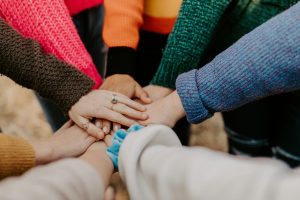
As a leader, Denzel is proud to see the fruits of these hands-on activities blossom in participants. “They gain confidence they’ve never had before and really come out of their shells. They discover new hobbies and interests in a calm and relaxed space.”
Although Denzel found immense satisfaction in his work, 2020 marked a change of heart — leading Denzel to pursue an unanticipated path. “When we got to dealing with COVID, I realized I didn’t want to be in lockdown at home because it would affect my mental health,” he reflects. “I remember asking myself when the last time I really went for something was. I’d been out of school for a while, and began thinking it would be nice to go back.”
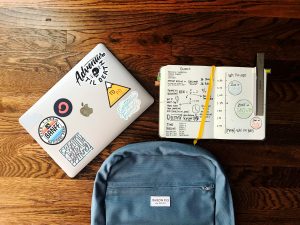
At Goodwin University, we start with you. With comprehensive support services, small class sizes, and hands-on learning opportunities, you’re always more than a number here. Learn how the Goodwin community can help you achieve your personal and professional goals today!
Returning to class
Exploring the academic opportunities ahead of him, Denzel quickly determined Goodwin would be the best place to pursue his degree. “I wanted to try something different. Being from the area, I heard about Goodwin,” Denzel offers. “I felt like Goodwin was for everyone. It gives you opportunities you’ve always wanted to find and can help you branch out right from where you’re standing.”
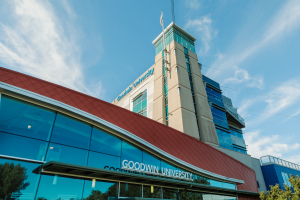
While Goodwin may have been an easy choice, picking a program of study was the second decision Denzel would have to weigh. “I was going for my associate degree, but wasn’t sure what kind of degree I wanted to go for,” he recounts. After some consideration, the idea came to Denzel, and the stars aligned instantly — he would pursue his degree in Human Services. “As I was working toward my associate degree, I came to the realization that I’ve always been a people person. I like talking to people and getting to know them more, even helping them reach what they’re trying to achieve.”
Safe. Seen. Validated.
Given Denzel’s first-hand experiences with identity and advocacy, the specifics of his developing academic journey took little deliberation —swiftly solidifying as a long-term career plan. “The autism community has meant so much to me, so I figured going for my degree in Human Services would help me work more with other fellows on the spectrum,” he shares. “I want to help the autism community and everyone on the spectrum try to come out of their shells.”
By achieving his Human Services degree, Denzel intends to use empathy and perspective to positively impact individuals who have faced struggles similar to his own. His voice and identity on the spectrum enrich his advocacy — promoting visibility and inclusion for other neurodiverse and autistic people. “I’ve been there, and the autistic community did so much for me. I got to meet more people like me,” Denzel reflects. “I want to help others feel like they’re not alone. I want to help them feel safe, seen, and validated.”
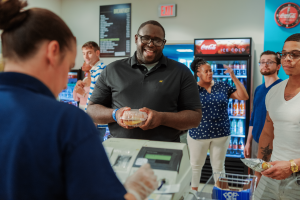
With an eye on his aspirations, Denzel has found the Human Services program is elevating his professional development. In addition to providing hands-on opportunities to dive into the field, Denzel found Goodwin’s Office of AccessAbility to be a significant source of support. “Molly Zatony from AccessAbility has helped me find the best ways to organize myself and understand my classwork by providing information in a more accessible way — going beyond how the work is presented in class.”
Differences in diversity
Historically stigmatized, ASD was once considered a condition in need of a cure. Today, with advanced insights into neuroscience, an increased understanding of human diversity, and higher values of social equity, visibility and awareness about autism have risen. “People once thought autism was a disease happening that could affect their children, or that it was a hoax,” Denzel attests. “But it’s really gotten out in the open.”
Throughout his studies, Denzel has maintained his role at Autism Families of Connecticut — using his platform to inspire positive progress and inclusion. “In 2022, we spoke at the state capital where people were standing outside for this big event,” he shares. “There were even news reporters there broadcasting everything. I joined our program director on WTNH Channel 8 News. I told them what we do and how we really make a difference.”
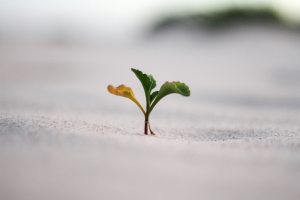
Still, there remains much work to be done. One consideration is intersectionality. For autistic people of color, the overlapping barriers of neurotypical ableism and racial prejudice present significant hurdles. From social and institutional biases to inequitable justice practices, Black individuals on the spectrum are critically marginalized.
On March 9, 2024, light was shed on this issue when Ryan Gainer, an autistic Black teenager, was killed by San Bernardino police while experiencing a mental health crisis. Quickly spreading awareness and outrage, Gainer’s tragic death has amplified conversations about the unique challenges and biases faced by Black autistic youth.
Being a Black man on the spectrum, Denzel is intimately familiar with these disparities. Reflecting modern visibility, Denzel hopes his advocacy can help continue to change the tides. “We’re seeing people from diverse backgrounds and races being diagnosed on the spectrum more and more. It’s making a difference for everyone. The public attitude shift is gradual, but it’s good to start going in that direction.”
Be your own character
With the crossroads of commencement quickly approaching, Denzel finds himself not at a loss for what his next steps may be but with the momentum and motivation to charge toward his goals.
Continuing to uplift others, Denzel shares the insights he’s gained as a student on the spectrum. “If you’re feeling stressed, take a breather and give yourself a self-care moment,” he suggests. “If you get stressed when you have a lot of work to do, it can feel like you can’t breathe. When you’re calm and relaxed, you can continue the work you’re doing.”
Denzel further notes that remaining mindful looks different for everyone. “I meditate in the morning to start my day,” he explains. “Art and poetry also put me in a calm, comfortable, and relaxed space that keeps me in the zone.”
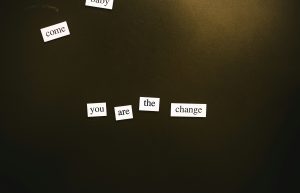
Above all else, Denzel encourages autism to be seen not as a weakness but as a strength. “Autism has always been the difference-maker. When it comes to autism, don’t see it as a dangerous thing. See it as a good thing,” he offers. “Be comfortable, confident, and be your own character. By being different, you can really make a change in this world.”
Dream of making a difference? At Goodwin University, our certificate and degree programs prepare you to be the change you wish to see in the world. Begin your Goodwin journey today and become the changemaker you’re meant to be!
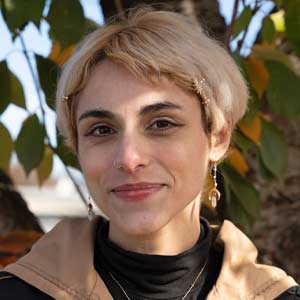
Bri Gagné is a content developer at Goodwin University, bringing backgrounds in literary studies, creative storytelling, Universal Design for Learning (UDL), and social justice. They earned their bachelor’s degree in English Literature, Film Studies, and Gender Studies from University of Connecticut and a master’s in Elementary Education from Eastern Connecticut State University.
After teaching English abroad and locally, Bri transitioned to a full-time writing career, contributing to the University’s educational narratives and brand-building efforts. They are currently earning their Master of Fine Arts in Popular Fiction Writing and Publishing at Emerson College.

